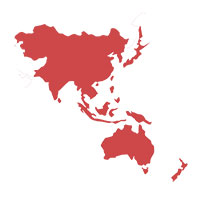Knowledge Fuelling Women
admin | December 1, 2011.
On the back of the immense challenges posed by the climate crisis, adaptation solutions have become an opportunity to empower women in the Global South.
“There was soot deposited in our eyes because of kerosene lamps being lit inside the house. This is one of the major reasons why we wanted a better lighting option.”
Umur Kujur is a resident of Ulti Village in Jharkhand, north-east India; a place transformed by a solar lantern project helping local women become lighting entrepreneurs.
Umur’s community once relied upon kerosene rations; inadequate in supply and detrimental to the health of people and the environment.
The women of Ulti Village are now skilled in the creation, marketing and maintenance of solar lanterns, providing them and their families with a source of income. They have gained greater community standing and respect for their endeavours, as well as improving education by enabling access to a reliable lighting source for study.
Low-carbon adaptation initiatives are being rolled out throughout Bangladesh, India and surrounding states. Microhydro, biogas and low carbon farming all provide skills and opportunities for poor communities, increasing food security and reducing reliance on climate-sensitive energy sources such as firewood.
 Coastal Development Partnership’s Mr. Jahangir Hasan Masum highlights the need to recognise the potential of poor and marginalised women in climate issues.
Coastal Development Partnership’s Mr. Jahangir Hasan Masum highlights the need to recognise the potential of poor and marginalised women in climate issues.
“Knowledge fuels the courage in women. We need to create an enabling environment where poor women’s learning and knowledge can be maintained,” he said.
In spite of successful projects taking place at a community level; national and international policy frameworks generally lack overt statements regarding gender. Structures governing adaption called National Adaptation Programmes of Action (NAPAs) are implemented voluntarily by some developing nations. Of 45 countries with NAPAs, less than 10 include a thorough gender dimension.
Dr. Nafisa Goga D’Souza of the Indian Network on Ethics and Climate Change believes it is important to incorporate the gender dimension upfront in our policy frameworks “urgently, fast and now”.
“These projects do demonstrate hope,” she said.
With climate change an issue inherently attached to fear and uncertainty, hope is a rare yet essential element in discussions. The potential for clever and overt policy frameworks promoting women’s empowerment in the Global South appears a win-win situation for negotiators, women and communities worldwide.












comment